Yes, a garage door opener can be too powerful, possibly causing unnecessary strain on the door’s components, leading to premature wear and tear.
Yes, a garage door opener can indeed be too powerful. If the horsepower of the opener is too high for your garage door, it can cause unnecessary wear and tear on the door’s components, leading to premature failure.
The key is to find the right balance of power and efficiency for your specific door. This article delves into the nuances of choosing the right garage door opener, including the risks of an overly powerful opener, how to determine the appropriate power level, and recommendations for various types of garage doors.
Stick around to ensure you make an informed decision about your garage door opener.
Key takeaways:
- Garage door opener can be too powerful, causing premature wear.
- Choose opener strength based on door size, weight, and material.
- Excessive power can lead to wear, safety issues, high energy consumption.
- Other factors to consider: frequency of use, system compatibility, cost.
- Balance power and efficiency, consider door size and weight.
Determining the Right Strength for Your Garage Door Opener
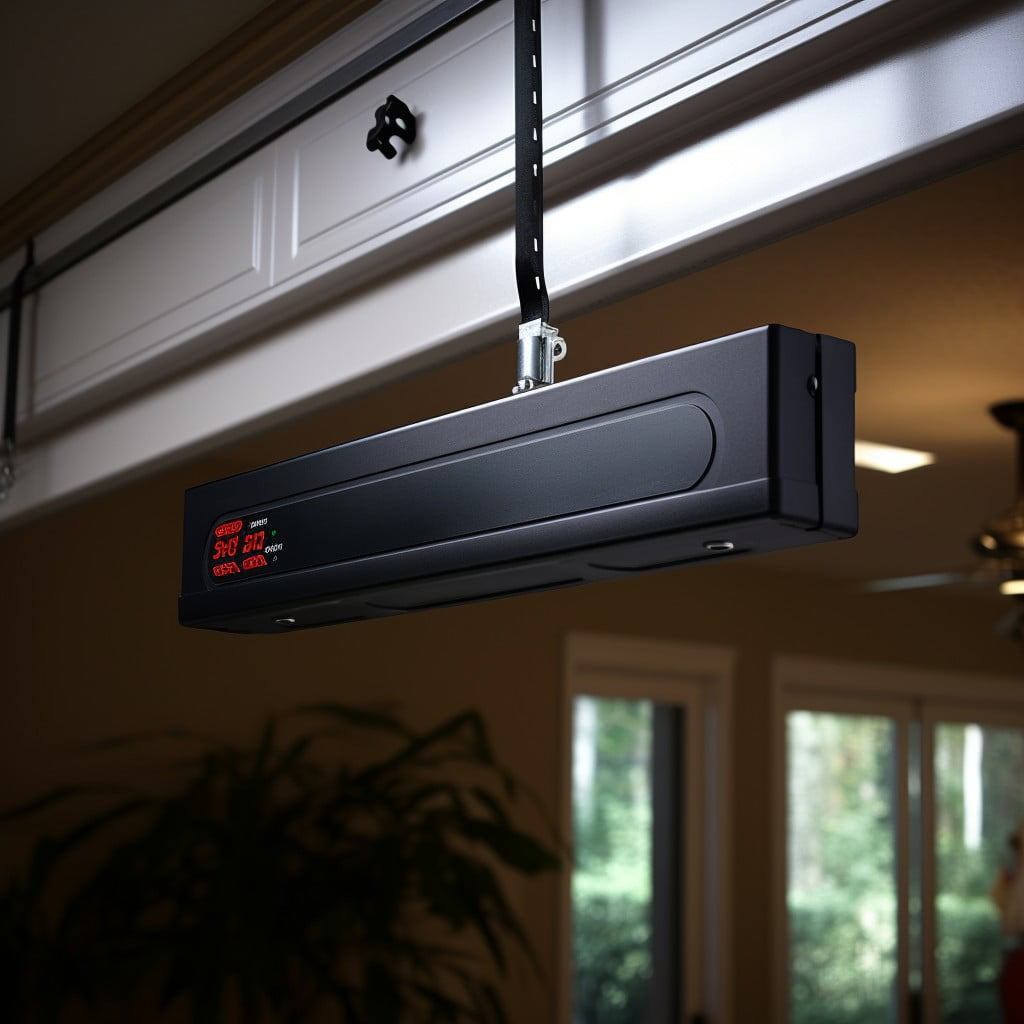
The correct strength for a garage door opener largely depends on the size, weight, and type of your garage door. A standard single-car garage door may work efficiently with a 1/2 horsepower (HP) unit, while a larger double door may require a 3/4 HP or even a 1 HP opener for optimal performance and longevity.
It’s essential to consider these elements:
- Door Material: Metal or lightweight doors typically require less power than heavier wooden or insulated doors.
- Door Size: Larger garage doors need more power to lift and lower them seamlessly.
- Type of Drive: Chain-drive openers often need more power compared to belt or direct-drive mechanisms due to their operational needs.
- Frequency of Use: More HP might be beneficial if your garage door is frequently used or if it’s the main entrance to your home. Every opener is designed for a limited number of cycles per day.
Remember, choosing an opener with more horsepower than required won’t quicken the door’s speed—it’s usually capped at around 7 inches per second for safety reasons—but it might unnecessarily wear your door’s components. It’s about finding the right balance that suits your specific circumstances.
The Implications of Having an Excessively Powerful Garage Door Opener
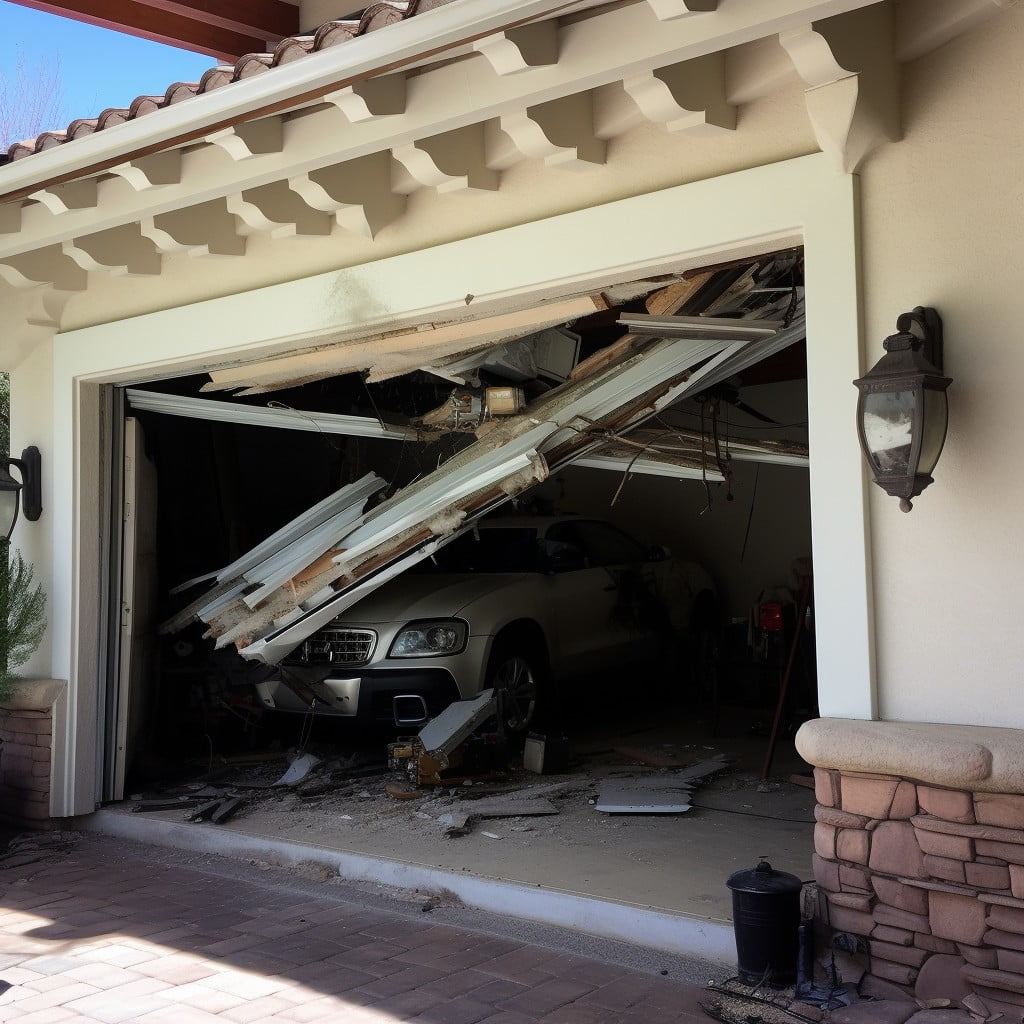
A garage door opener that’s too powerful can lead to a series of issues. First of all, it may cause unnecessary wear and tear on your garage door. The increased force could damage the door’s mechanisms, reducing its lifespan.
Second, a high-powered opener could be less safe. In the event of an obstruction or accidental closure on an object or person, the extra power could result in injury or significant damage.
Not to mention the energy consumption. More power generally means more electricity used, which can impact your energy bills. Over time, the cost discrepancy between a higher and lower power model can add up.
Finally, compatibility issues may arise when your opener is significantly more robust than required. The system’s components might not work well together, leading to malfunctions or necessitating costly repairs.
Bear these points in mind when choosing a garage door opener. It’s not just about power, but also about the efficient and safe operation of your garage.
Power Vs Other Factors in Choosing a Garage Door Opener
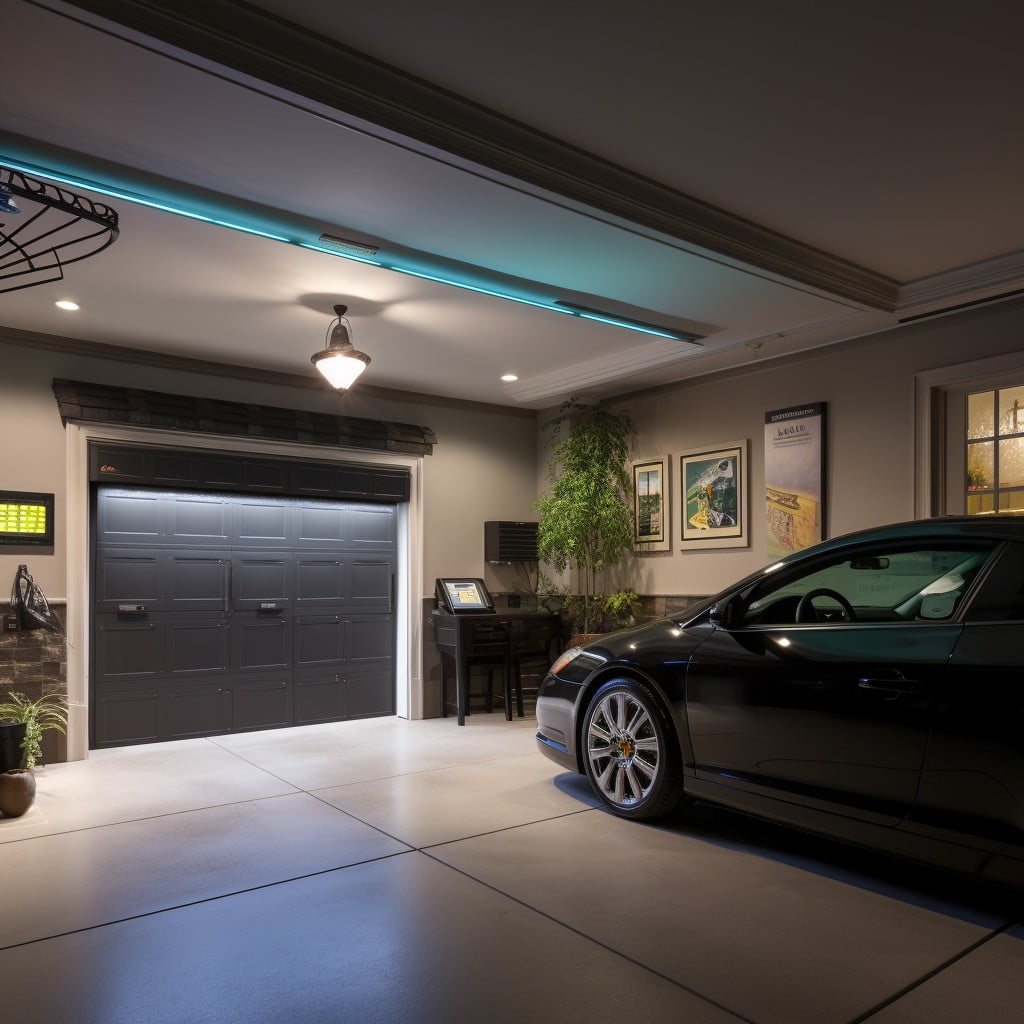
An excessively powerful garage door opener may seem like the ideal choice, but it’s essential to consider other elements.
1. Size and weight of the door: A door’s heaviness is a significant determinant in the strength needed. Light doors may require less power, whereas heavy or double doors may necessitate a stronger unit.
2. Frequency of use: Loud garage door openers may seem less obtrusive for infrequent use. However, for frequently accessed garages, a less powerful but quieter unit would be much more convenient.
3. System compatibility: Some high-powered openers may not be compatible with existing garage setups. Before making a purchase, always verify this information.
4. Energy efficiency: While a robust opener guarantees effectiveness, it might lead to higher energy consumption, affecting your electric bill. Opting for a less powerful but energy-efficient model could be more economically viable.
5. Cost: Higher-powered garage openers usually come with a heavier price tag. Pair this with potential increased energy costs, and your budget might be overly strained.
6. Longevity: Overpowering can wear out the garage door mechanisms faster. This potential for increased maintenance and replacements is an important factor to consider.
While power is crucial, it is not the only aspect that matters. Balancing power with these other factors is key to making an informed decision.
Balancing Power and Efficiency in Garage Door Openers
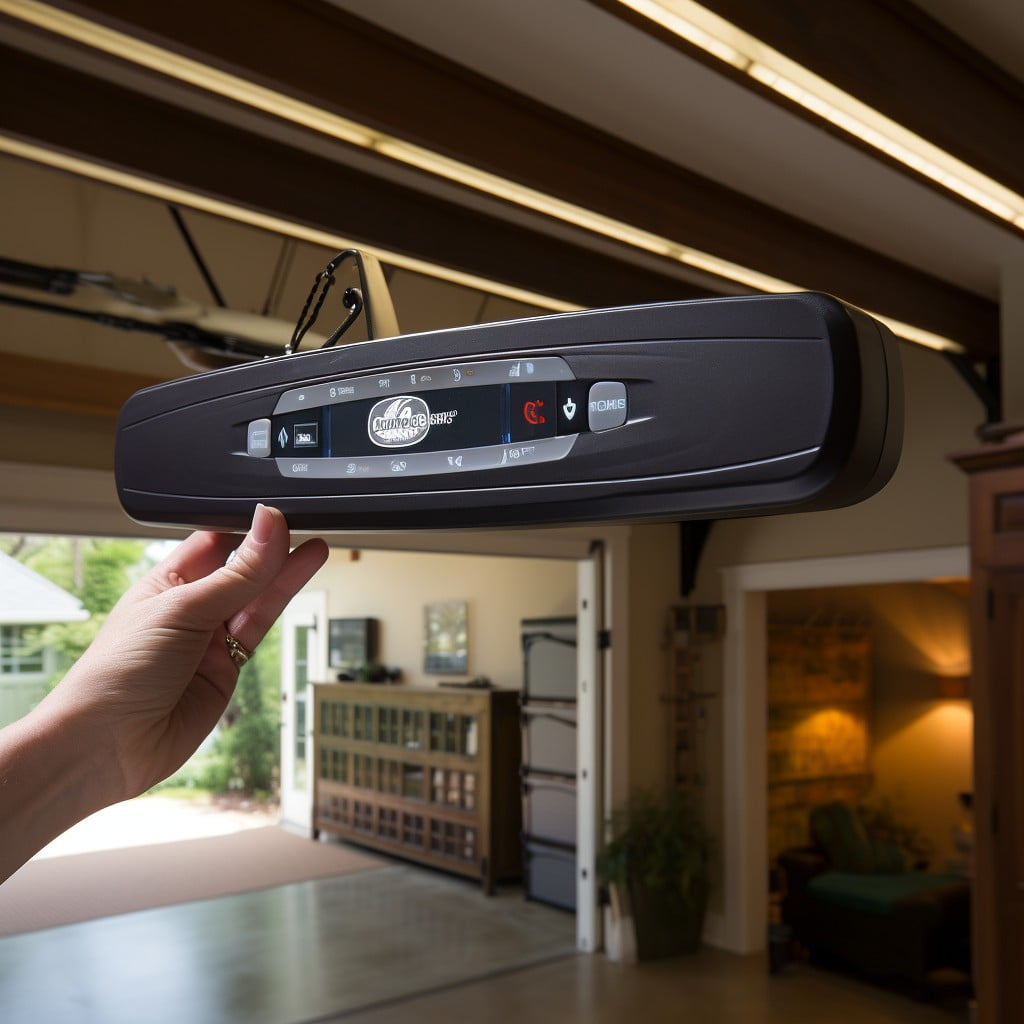
Selecting a garage door opener with the appropriate power isn’t solely about choosing the strongest option. Consideration should also be given to efficiency. A crucial factor is the size and weight of your garage door.
A single-door garage, for instance, generally requires an opener with at least 1/2 horsepower. Larger double doors or solid wood doors demand a higher horsepower for efficient operation.
Overpowering for a lightweight door may result in unnecessary energy consumption and potential wear on the mechanism. A balance between power and energy efficiency is essential to prolong the lifespan of your opener and maintain the best performance. The correct choice should offer sufficient power to smoothly and consistently operate your door while not exceeding energy use.
Experiment with different models or consult with a garage door expert to find the perfect match for your specific needs.
Moreover, remember that power isn’t the only feature to look for in a garage door opener. Safety features, noise level, speed, and smart technology options also contribute significantly to the efficient operation of a garage.
Selecting the Appropriate Garage Door Opener for Your Garage
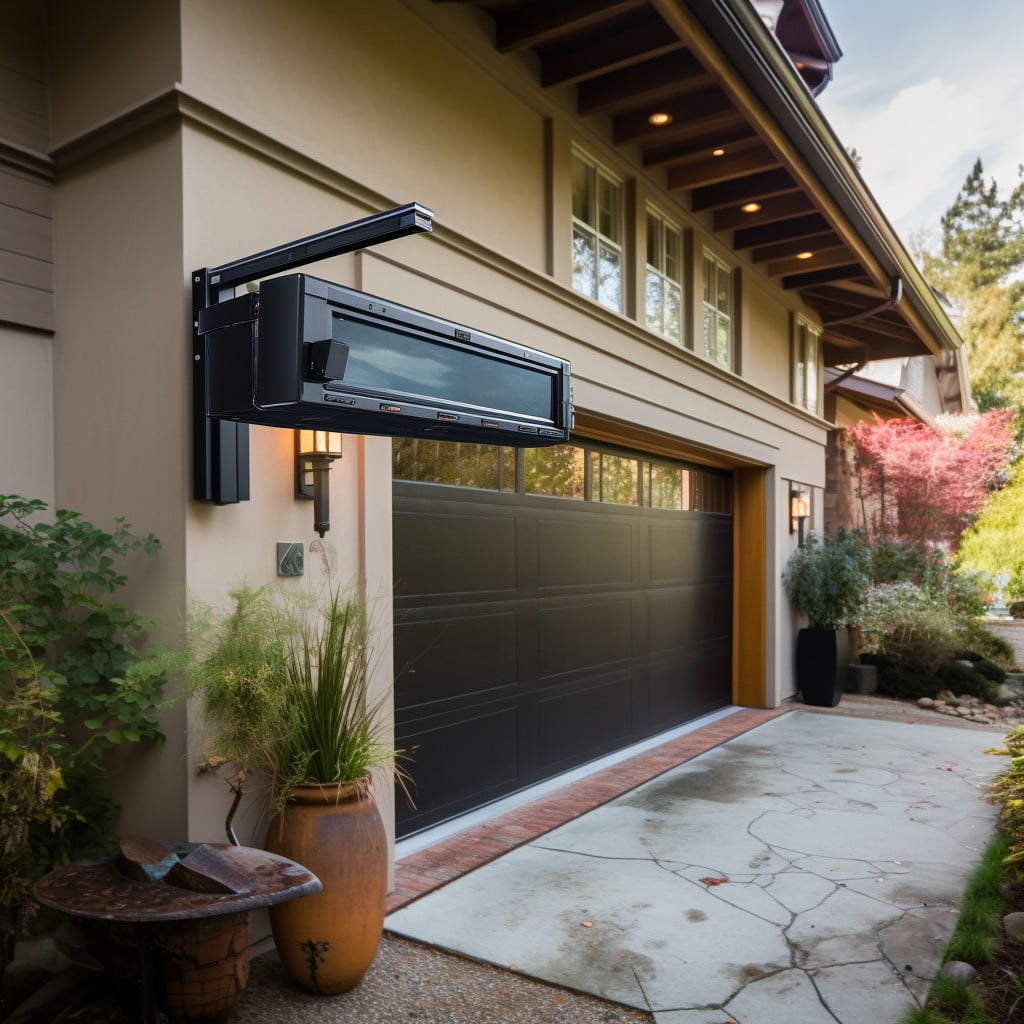
To steer you in the right direction, here are crucial points to take note of:
1. Size of Garage Door: The size of your garage door significantly influences the type of opener you should select. When it comes to larger, heavier garage doors, you need a stronger opener to lift it. However, it’s crucial not to oversize your opener as it can lead to unnecessary wear and tear.
2. Weight of Garage Door: If the door’s weight is heavy, opt for a more robust opener. Alternatively, a less powerful opener can handle lighter doors to avoid untimely damage.
3. Frequency of Use: How often you open and close your garage door plays a role. More frequent use may necessitate a more powerful opener.
4. Opener Type: Some types of garage door openers are naturally more powerful, like chain-drive openers. Others, like belt-drive openers, are quieter but may not provide the same lifting power.
5. Maintenance and Longevity: A garage door opener’s lifespan can be shortened if it’s excessively powerful for your door. A correctly matched opener requires less maintenance and can provide better service over time.
Remember, a garage door opener isn’t just about raw power. It’s crucial to consider factors like quality, reliability, and suitability to your specific garage door.
Understanding When It’s Necessary to Replace a Strong Garage Door Opener
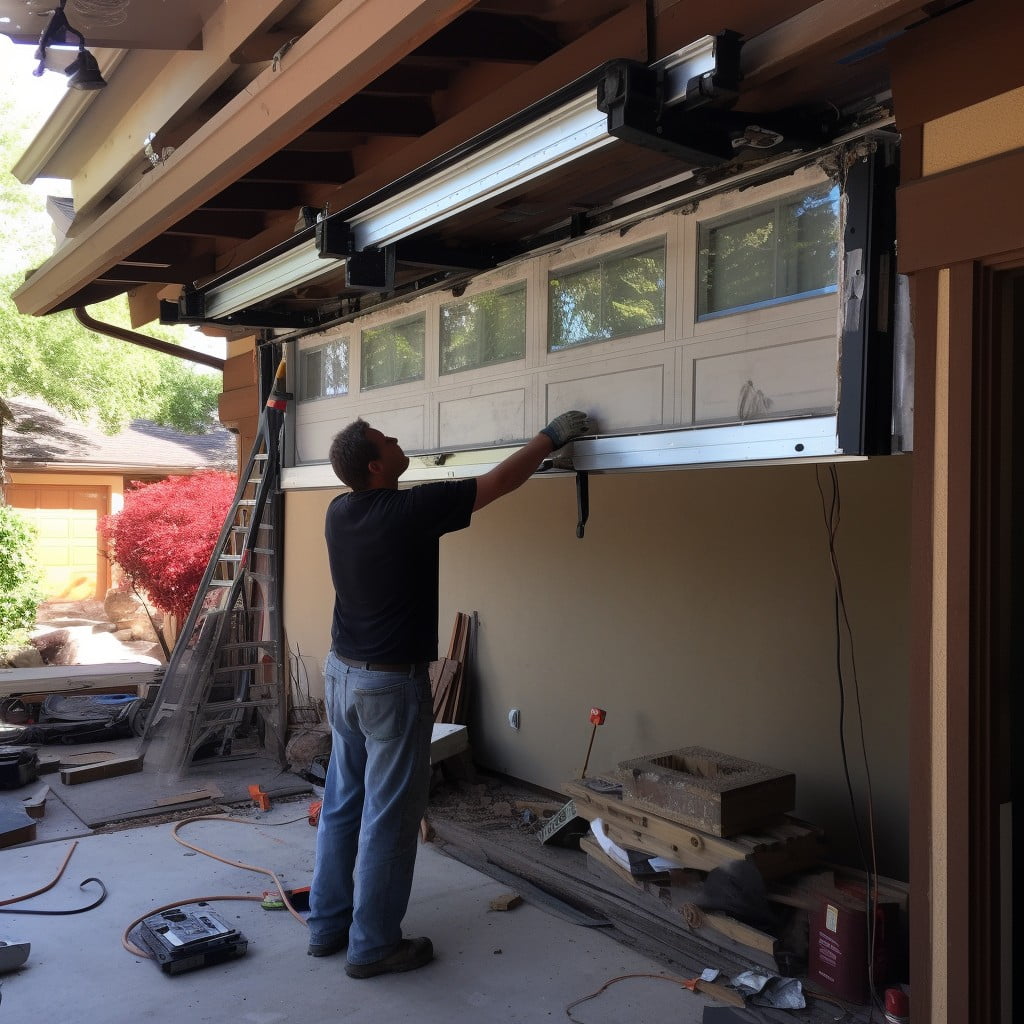
Intuitively, one might consider a stronger opener a superior choice, but that’s not always the case. Several aspects should trigger a reconsideration of a garage door opener’s power.
Firstly, consider the wear and tear on the garage door itself. An overly potent opener might generate excessive force, leading to strained springs and unnecessary wear on the door. This could prematurely age your garage door, resulting in frequent replacements.
Secondly, recognize that strength doesn’t equate to speed. A stronger opener won’t necessarily operate faster; hence, increased capacity may not always confer apparent benefits.
Lastly, take your garage’s size into account. Heavier, larger, or double doors may need more strength to lift. Conversely, a single, lightweight door doesn’t require intensive power. Always align the garage door opener’s strength to the door’s requirements.
Therefore, understanding these aspects aids in assessing whether it’s necessary to replace a strong garage door opener with one that delivers the accurate power necessary to optimize the lifespan and function of your garage door.
Impacts of a Too Powerful Garage Door Opener On Door Mechanics
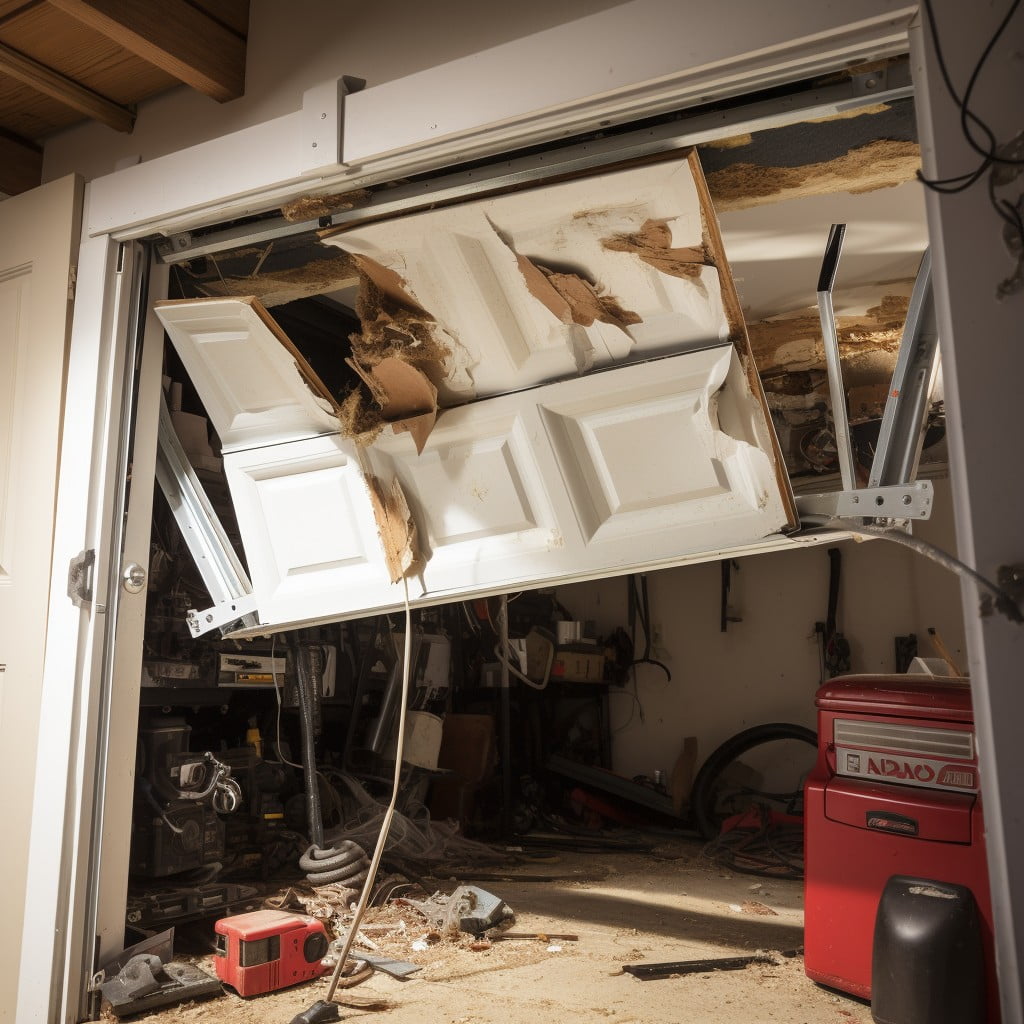
An excessively powerful opener can put undue strain on the garage door mechanism leading to premature wear and tear. For instance, the greater force exerted by such an opener may compromise the torsion springs. The springs balance the weight of the door, and extra power might cause them to snap prematurely.
The additional power can also be problematic for the garage door cables. Like the torsion springs, these components need to support the weight of the door. Too much force can cause these to fray or break sooner than expected, which would require replacement.
Moreover, the door opener’s arm and the bracket attached to the door can also sustain damage from a powerful opener. The arm, which connects the opener to the door, can become bent or distorted, while the bracket may gradually loosen.
Lastly, an excessively powerful opener could also potentially damage the door itself. The abrupt movement caused by the high power may bend some sections of the door, crumple others, or even warp the entire structure. Not only will this affect the aesthetics, but it could also compromise the function of the door, leading to costly repairs or replacements.
FAQ
How powerful should my garage door opener be?
For a sectional double-car garage door, a 1/2-horsepower motor is usually adequate, yet a model with more power will function with less strain and longer life for the motor.
Is 1.25 HP garage door opener too much?
No, a 1.25 HP garage door opener is not too much, it's typically ideal for your home garage door, particularly if it's a larger door.
Is a higher HP garage door opener better?
Yes, a higher HP garage door opener is better as it enables more efficient lifting of heavy or oversized garage doors.
Does horsepower matter for garage door opener?
Yes, horsepower does matter for garage door openers; consider your garage door size and frequency of usage to determine the appropriate horsepower, with 1/2 horsepower sufficing for standard residential aluminum doors and 3/4 to 1 1/4 horsepower necessary for primary entrances or oversized doors.
What impacts could a garage door opener with excessive horsepower have on the door's performance?
A garage door opener with excessive horsepower could unnecessarily stress and potentially damage the mechanism, leading to poorer performance and earlier wear-and-tear.
How does the weight of the garage door influence the necessary power of the opener?
The weight of the garage door heavily influences the power of the opener, as heavier doors require stronger and more powerful openers for efficient operation.
Can the type of garage door (single or double) affect the garage door opener’s horsepower requirement?
Yes, the type of garage door, whether single or double, can affect the garage door opener's horsepower requirement due to differences in size and weight.